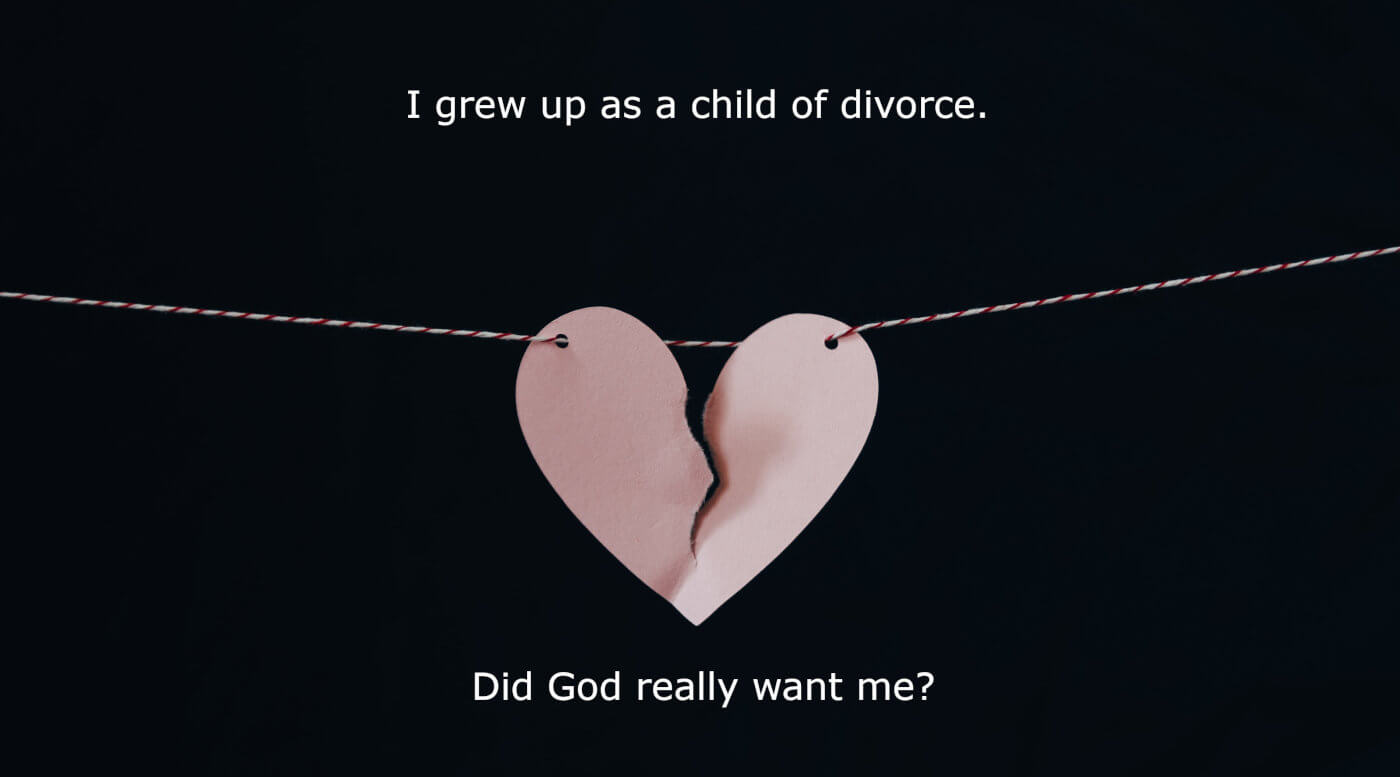I grew up as a child of divorce. Did God really want me?

My parents divorced when I was five, but it didn’t bother me much until I was 19. (This is not uncommon for girls—divorce often hits them later.) Eventually, my parents’ marriage was annulled. In the annulment process, a Catholic marriage tribunal examines numerous testimonies and sometimes deems that an obstacle prevented sacramental marriage from actually taking place, thus it is not binding per church law.
When I was in college, a divorced Catholic co-worker said she would not seek an annulment for fear that her daughter might see herself as outside of God’s plan. My co-worker’s brief comment turned my whole world upside down. Our family had always dealt with the sad reality of divorce by saying my parents weren’t “meant” to marry in the first place. I had never thought before what that implied about my own existence. If my parents’ marriage wasn’t “meant to be” made in heaven” or desired by God, that would seem to imply that I was not meant to be or desired by God.
What a terrible feeling—one not limited to children of divorce. Those conceived “accidentally” or through rape might very well question their existence, too. And for a time, I did.
However, I have come to peace about it in prayer, by reflecting on my faith and the Scriptures. First, these words from the New Testament Book of Romans were very helpful to me: “God causes everything to work together for the good of those who love God.”
My faith also teaches that when God permits bad things to happen, it is out of respect for the free will He’s given us and because He intends to bring a greater good out of them. This is not just a Catholic view. There is the old saying, “God writes straight through crooked lines.” Its meaning is made clear in the Hebrew scripture in the Tanakh, when Joseph tells his brothers, who had sold him into slavery, “Even though you meant harm to me, God meant it for good, to achieve this present end, the survival of many people.” Likewise, the Book of Proverbs says, “The human heart plans the way, but the Lord directs the steps.”
And then there’s Matthew’s genealogy of Jesus in which Christians of every stripe can see this principle illustrated. Surprisingly, it includes four mothers in this mostly male-reporting lineage: Tamar, a widow who became a mother by tricking her father-in-law; Rahab, a Gentile prostitute who helped the Israelites and later became the mother of Boaz; Ruth, another Gentile and David’s great-grandmother who married Boaz; and Solomon’s mother, Bathsheba, who married David after they’d committed adultery and he had her husband murdered. Though three out of four were sinful, God brought good out of all these situations—including, ultimately, the conception of Jesus. God also sent a potent message in inspiring their startling inclusion in this genealogy.
What I’ve learned is that God foresees everything, and He can bring good out of anything. Thus, those of us conceived in less-than-ideal or even evil circumstances (such as rape) can take comfort in this: we are the good He brings out of them.



